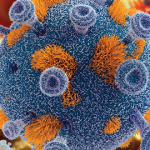Studies comparing the response to COVID-19 of patients with poorly controlled versus well-controlled rheumatic disease are also needed, she says.
“The findings [of this study] are not generalizable,” she adds, “as the sample size was small and there was no explanation about the baseline rheumatic disease activity of the patients.”
“Rheumatologists should optimize management of rheumatic diseases and encourage patients to continue their treatment regimen even during the COVID-19 outbreak,” she advises. “This strategy is reasonable as it aims to prevent rheumatic disease flares, thus avoiding intermittent use of high-dose corticosteroids which can further compromise immunity and predispose patients to a higher risk of secondary infection.”
Reference
- Ye C, Cai S, Shen G, et al. Clinical features of rheumatic patients infected with COVID-19 in Wuhan, China. Ann Rheum Dis. 2020 May 22;annrheumdis-2020-217627. Online ahead of print.


